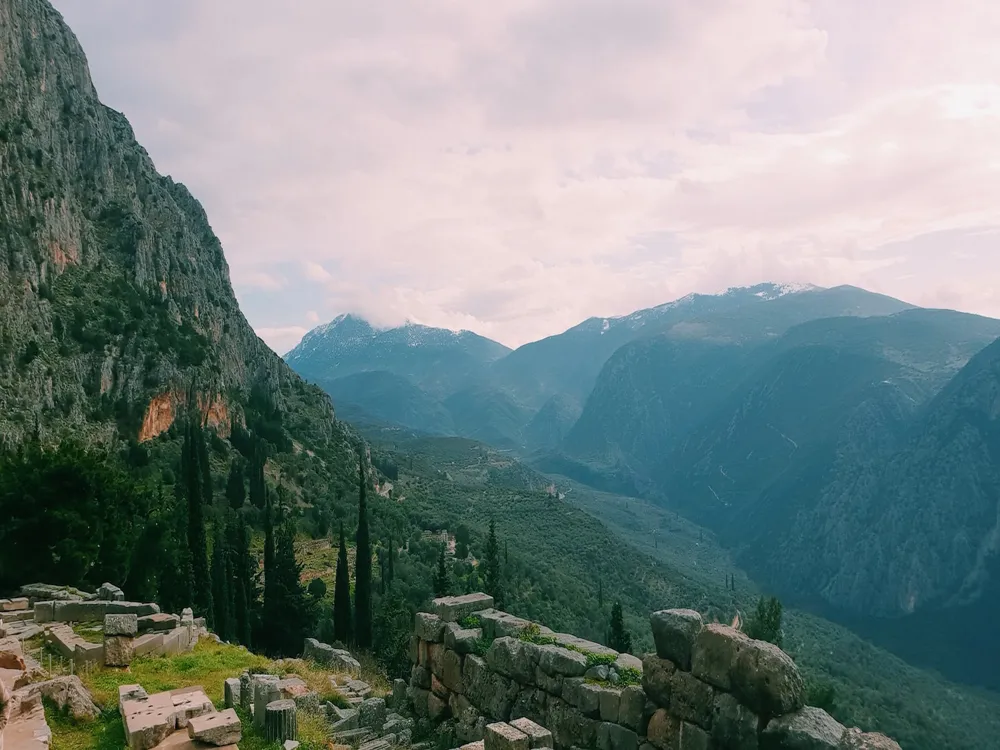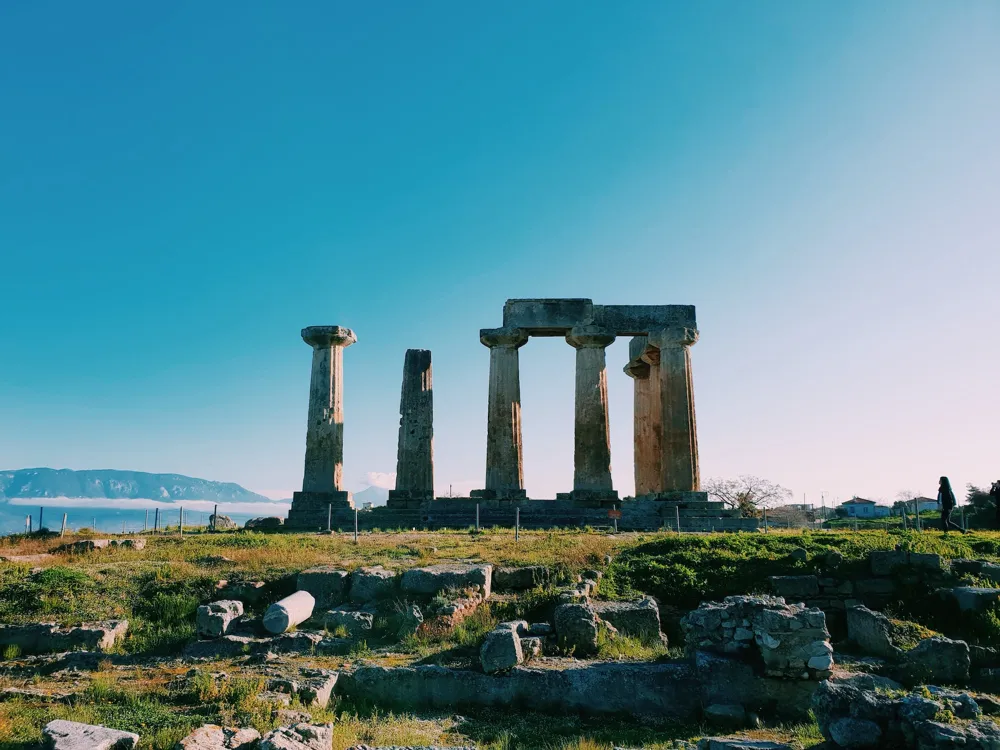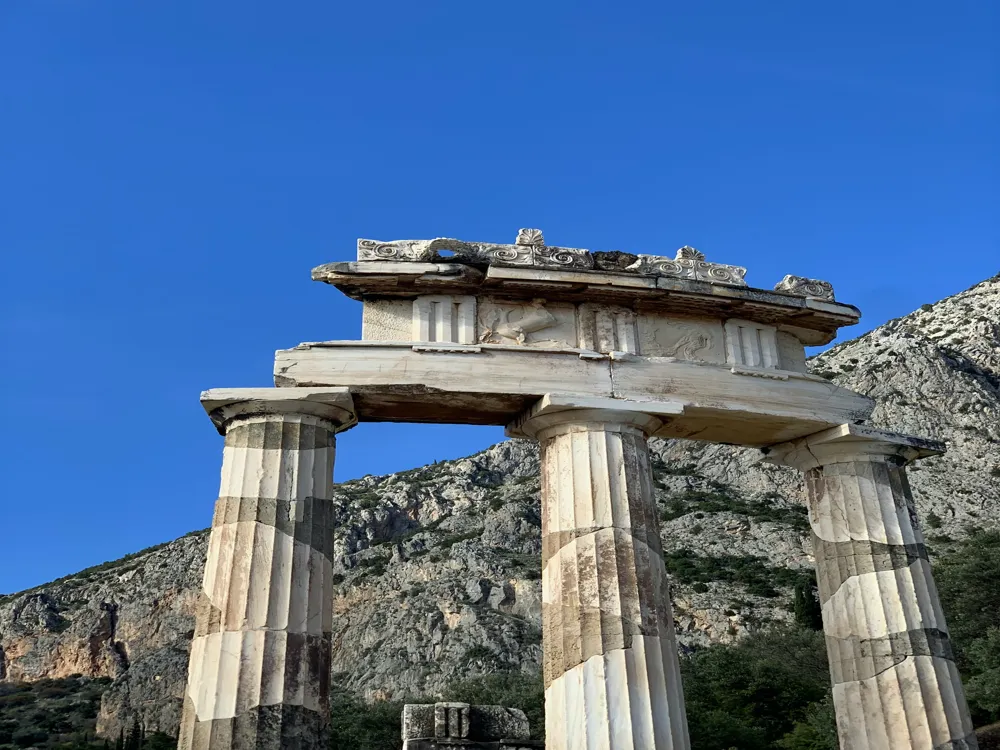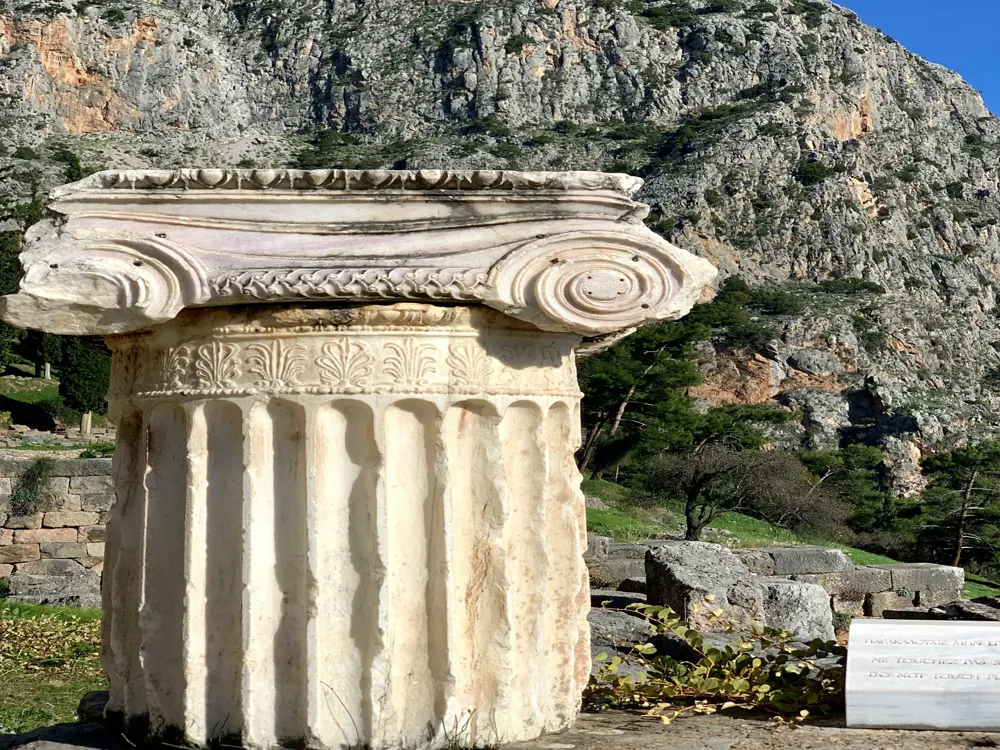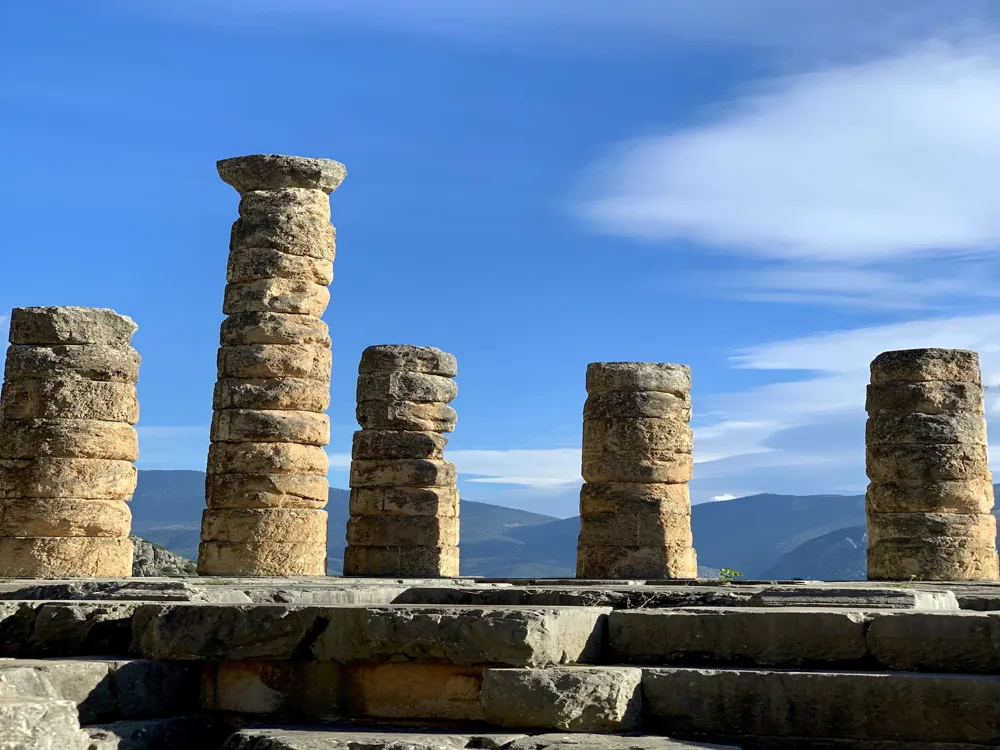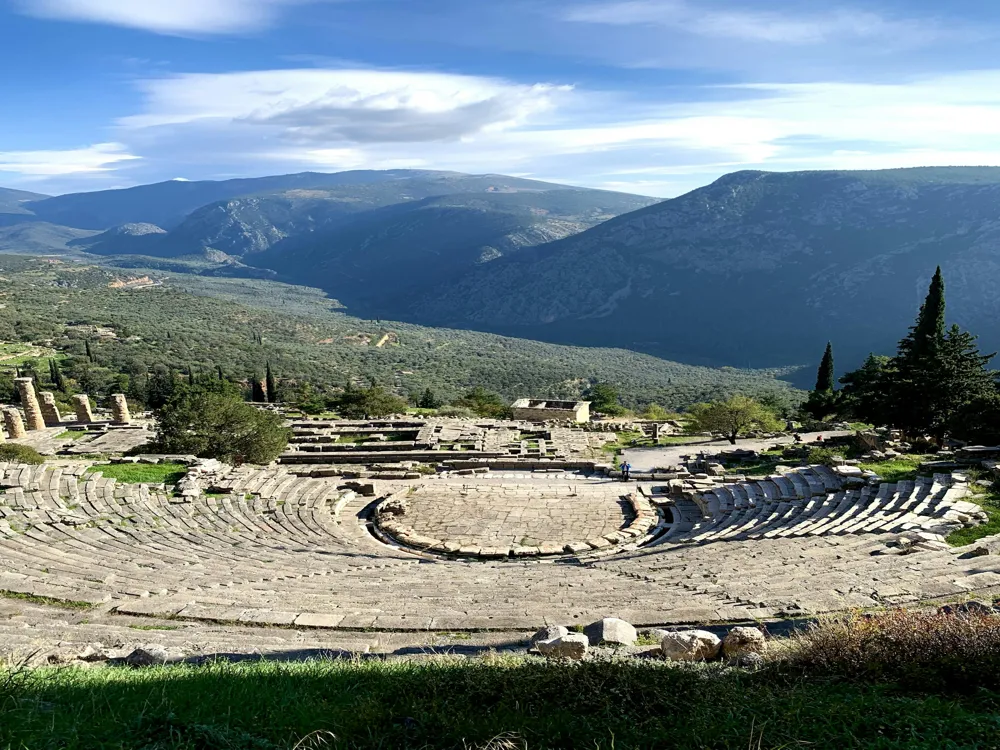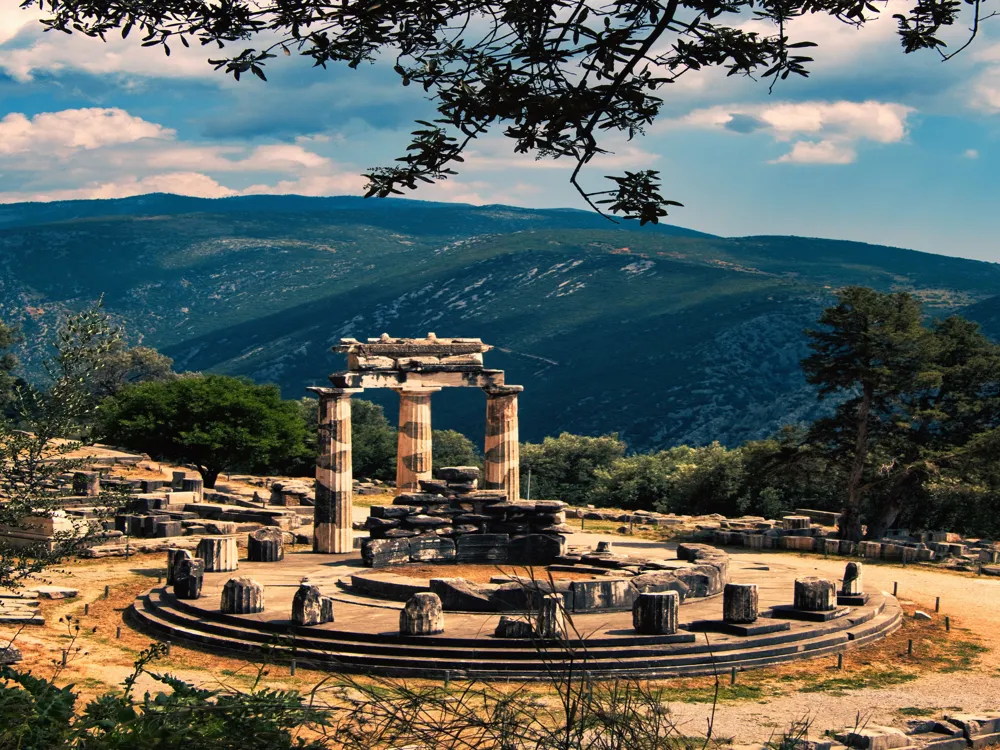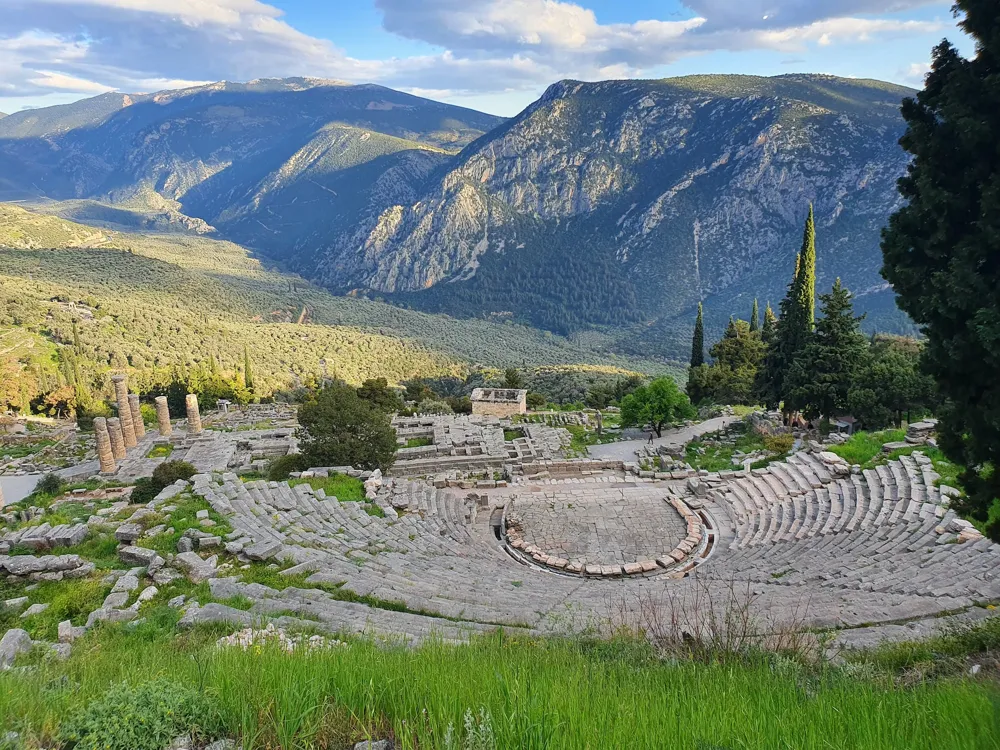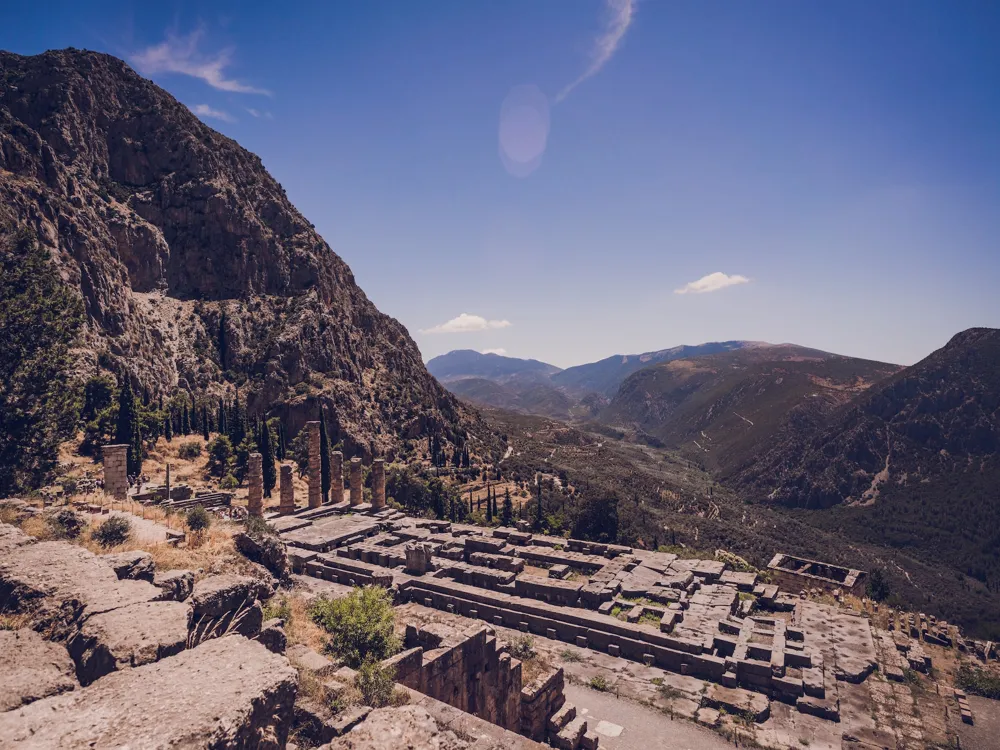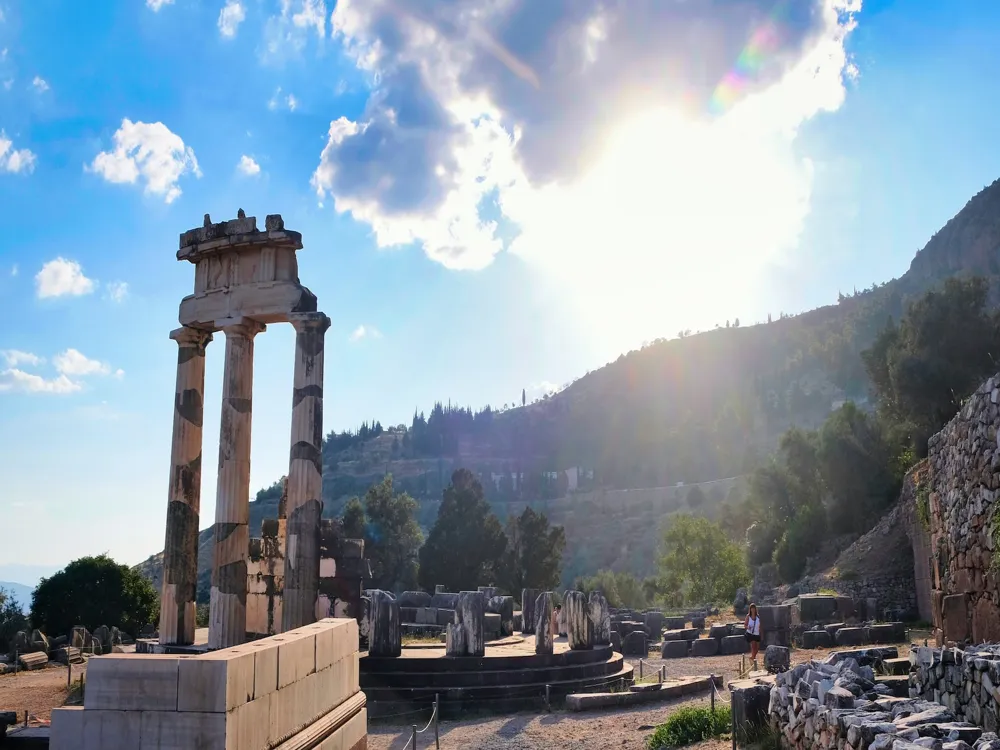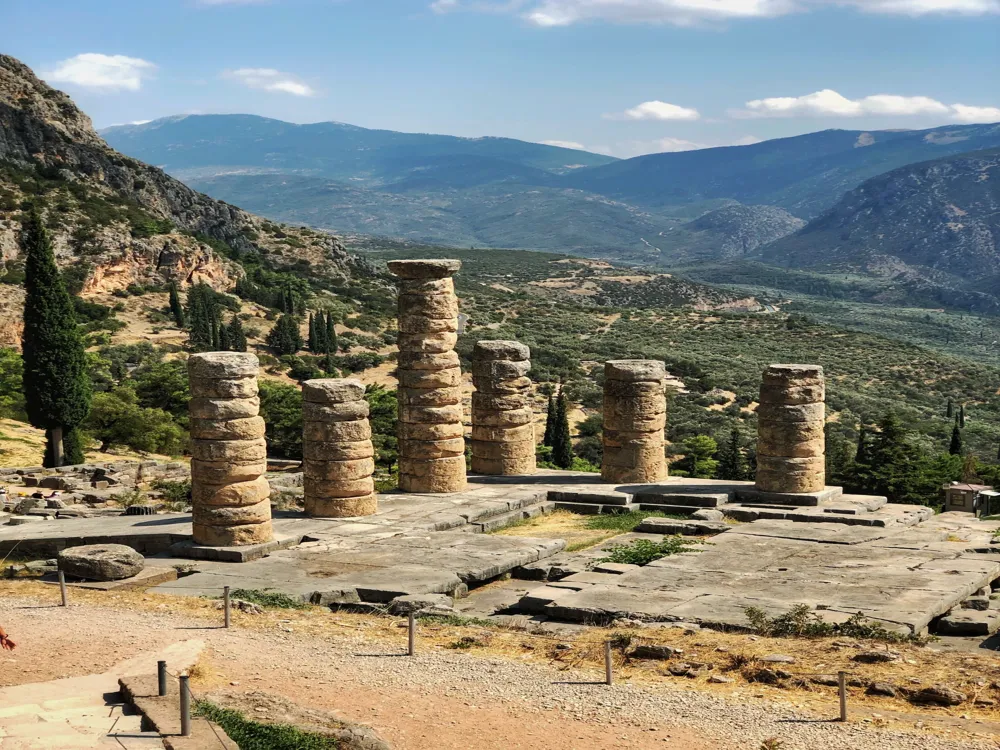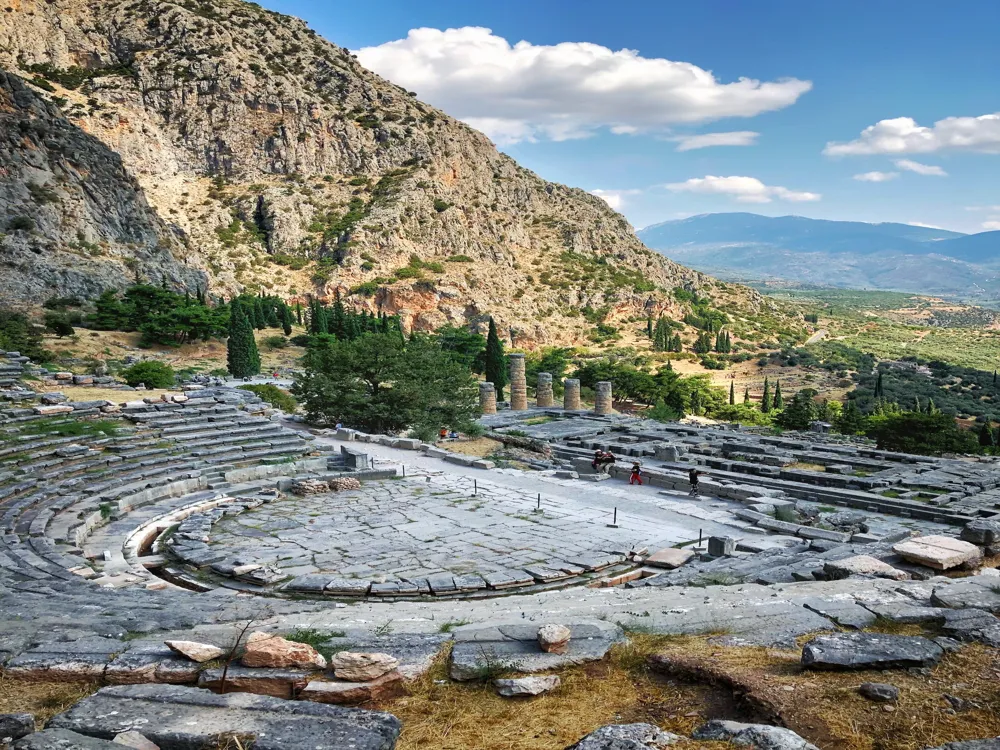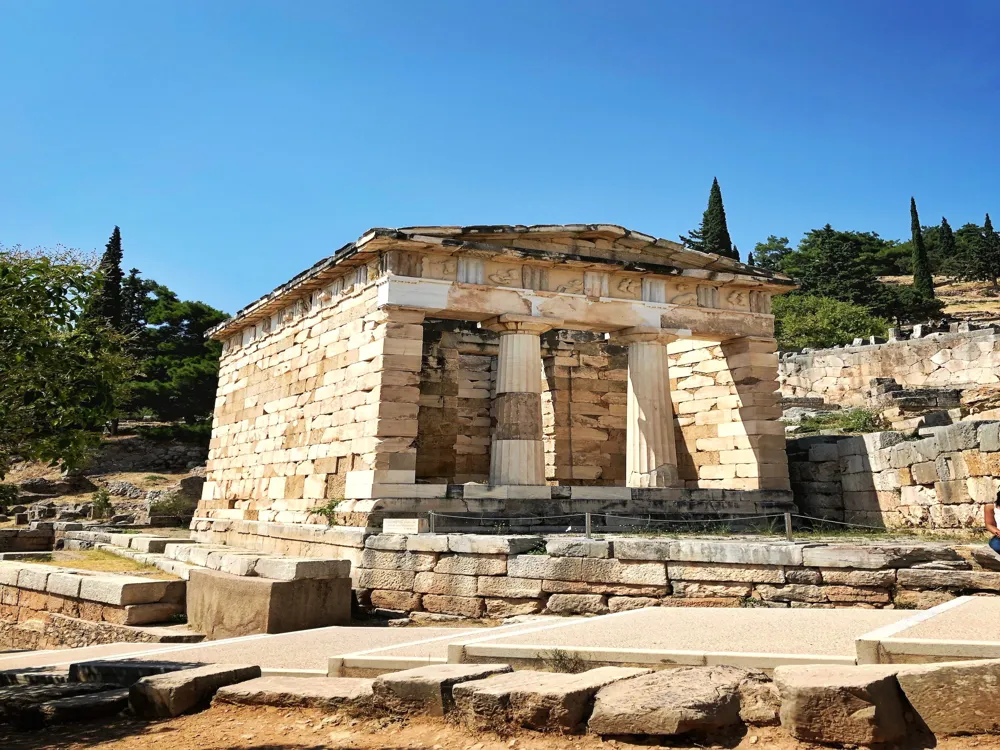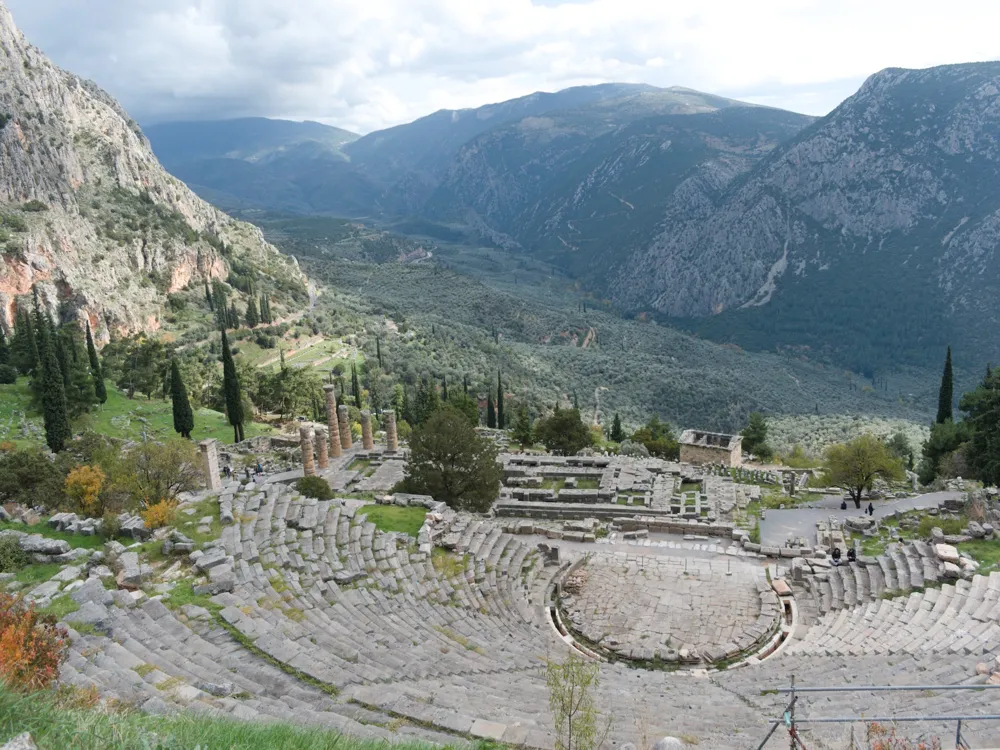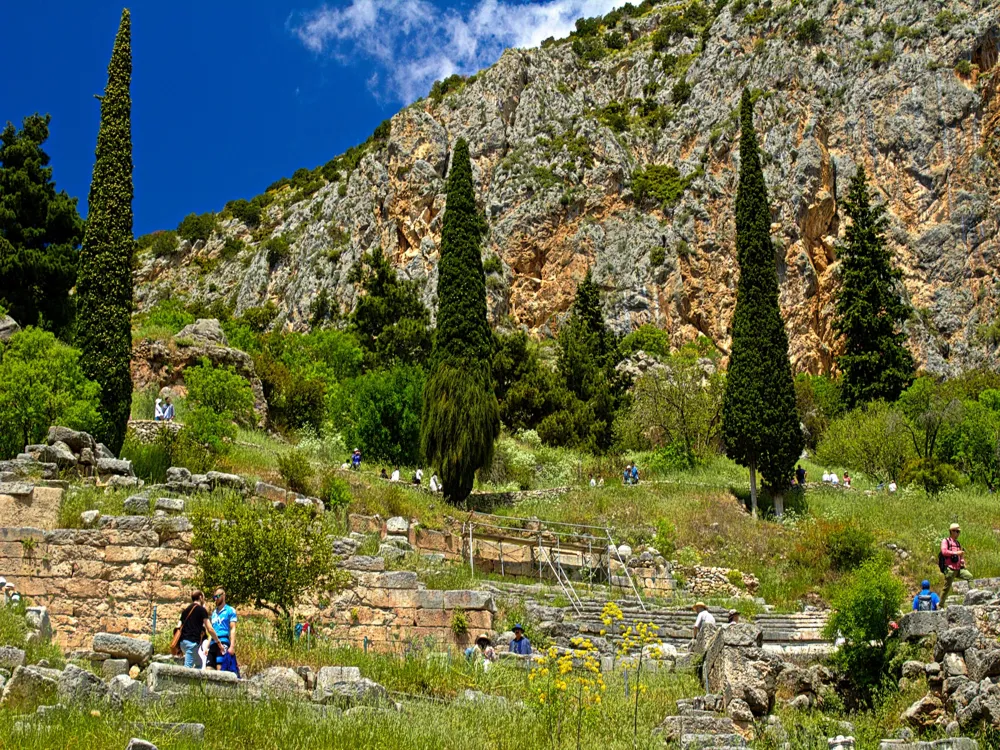Best Time To Visit Delphi
Greece
49 out of 50 Places to visit in GreeceNaN onwards View Packages
Get Customized PackagesThe Land of Diversity
Top Hotel Collections

Private Pool

Luxury Hotels

5-Star Hotels

Pet Friendly
What is the Best Time to Visit Delphi?
Nestled in the heart of Greece, Delphi is a timeless destination that beckons travelers year-round. The quest for the ideal time to explore this ancient marvel is as intriguing as the site itself. Let's embark on a journey through the seasons to uncover the nuances of Delphi's allure.
More about the Best Time to Travel to Delphi: A Comprehensive Guide
Travel Peak Season in Delphi: Where Myth Meets Reality
Delphi's peak season, spanning from late spring to early autumn, encapsulates the essence of the ancient world. The months from March to June witness a harmonious blend of pleasant weather and vibrant landscapes, making it the ideal time for history enthusiasts and nature lovers alike.
Travel Offseason in Delphi: A Tranquil Escape
For those seeking a quieter Delphi experience, the offseason, particularly in winter, provides an enchanting escape. From November to February, the crowds dissipate, leaving the sanctity of the ruins to be explored in solitude.
Delphi Travel Packages
View All Packages For Delphi
Delphi Weather in Winter (November – February): Embracing the Serenity
Delphi Weather in November: A Glimpse of Tranquility
November welcomes visitors with crisp air and a sense of tranquility, setting the stage for an intimate encounter with Delphi's historical wonders.
Delphi Weather in December: Embracing the Winter Charm
December unveils Delphi's winter charm, with a dusting of snow adding a mystical allure to the ancient stones.
Delphi Weather in January: A Silent Reverie
January's hush blankets Delphi in serene stillness, creating an atmosphere of introspection amidst the ancient ruins.
Delphi Weather in February: A Prelude to Renewal
As February dawns, Delphi experiences a subtle awakening, with hints of spring whispering through the dormant landscape.
Delphi Weather in Summers (March to June): A Symphony of Colors
Delphi Weather in March: The Awakening of Nature
March heralds the arrival of spring, painting Delphi in vibrant hues and inviting exploration amidst blooming flora.
Delphi Weather in April: A Kaleidoscope of Blossoms
April unfolds a tapestry of blossoms, enhancing the allure of Delphi's ancient ruins with the fragrant embrace of spring.
Delphi Weather in May: A Pinnacle of Beauty
May transforms Delphi into a botanical masterpiece, offering a visual feast for visitors captivated by nature's grandeur.
Delphi Weather in June: The Peak of Radiance
June bathes Delphi in radiant sunlight, creating a perfect canvas for the exploration of its cultural and historical treasures.
Delphi Weather in Monsoon (July – October): A Dance of Rain and History
Delphi Weather in July: Raindrops Amidst Ruins
July introduces sporadic rain showers, adding a poetic dimension to the ancient site and inviting a unique perspective.
Delphi Weather in August: A Refreshing Interlude
August brings intermittent rain, providing a refreshing interlude for visitors amid the historical grandeur of Delphi.
Delphi Weather in September: The Elegance of Autumn
September's arrival introduces the elegance of autumn, transforming Delphi's surroundings into a golden panorama.
Delphi Weather in October: Farewell to Rain
As October bids farewell to the occasional rain, Delphi stands adorned in autumnal splendor, inviting a final exploration before winter's embrace.
In conclusion, Delphi's timeless charm unveils itself across all seasons, each offering a unique perspective on its rich history and natural beauty. Whether amidst the blossoms of spring, the warmth of summer, or the tranquility of winter, Delphi welcomes travelers with open arms.
Places To Visit In Delphi
Nearby Places Delphi
Delphi Photos
View All Photos For DelphiBrowse Package Collections
Browse Hotel Collections
Faq
When is the ideal time to visit Delphi for pleasant weather?
The best time to experience pleasant weather in Delphi is during the spring months of April to June and the fall months of September to October. During these periods, temperatures are moderate, and the surroundings are lush and green.
Are there specific months to avoid due to extreme weather conditions?
Delphi can experience high temperatures during the summer months (July and August), making outdoor exploration uncomfortable. Additionally, winter (December to February) can bring colder temperatures and occasional snowfall, limiting outdoor activities.
What is the festival season in Delphi, and is it a good time to visit?
The Delphic Festivals typically take place in late June, featuring cultural events, music, and arts. This can be an excellent time to visit for those interested in local culture and festivities.
Is Delphi crowded with tourists, and when is it less busy?
The peak tourist season in Delphi is during the summer months. To avoid crowds and high accommodation prices, consider visiting during the shoulder seasons of spring or fall when the weather is still pleasant, but tourist numbers are lower.
What is the best time to explore the archaeological sites in Delphi?
Early morning or late afternoon during the spring and fall months is ideal for exploring the archaeological sites. The temperatures are milder, and the soft sunlight enhances the beauty of the ancient ruins.


